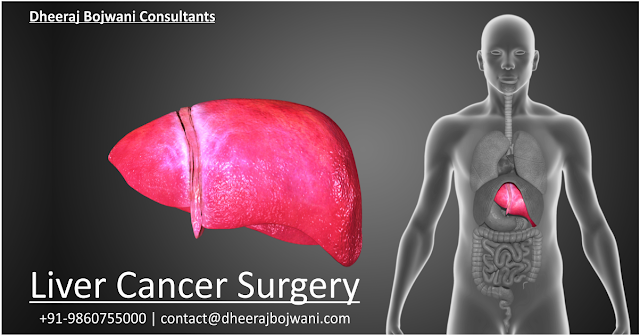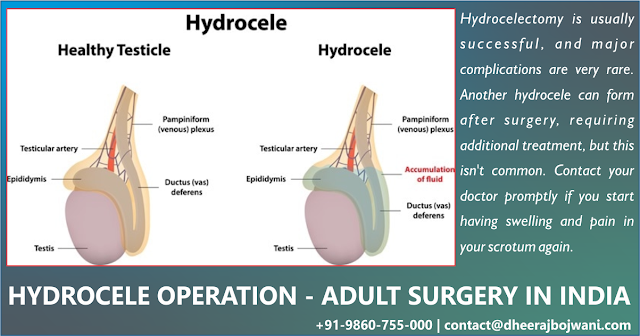Most Advanced Liver Cancer Surgery in India
Overview: Liver Cancer Surgery
Liver cancer starts with the growth of unhealthy liver cells. The liver cells when begin to grow uncontrollably and form a tumor, the cancer is termed as primary liver cells. In addition to liver cells, the liver has various other cells that line its blood vessels i.e., Hepatic artery & Portal vein as well as bile ducts.
With many kinds of cells, the liver is highly accessible to form different types of benign i.e., non-cancerous tumors or malignant i.e., cancerous tumors. Since blood in the body passes through the liver through the Hepatic artery & Portal vein, it is highly vulnerable to cancer cells from other organs present in the bloodstream.
What are the symptoms?
The symptoms of primary liver cancer include:
- Unexplained weight loss
- Loss of appetite
- Upper abdominal pain
- Pain in the shoulder blade
- Nausea and vomiting
- General weakness and fatigue
- Abdominal swelling or fluid build-up in the abdomen
- Yellow discoloration of the skin
- Cornea-the whites of eyes showing symptoms of jaundice
- Chalky white stools
- Liver enlargement (Hepatomegaly)
- Enlarged Spleen
- Itching
What are the risk factors?
Risk factors for primary liver cancer include:
- Age
- Smoking
- Liver Cirrhosis – is scarring of the liver due to previous damage. Scarring can cause problems in liver functioning and increase the risk of getting liver cancer (Hepatocellular Carcinoma or HCC).
- Alcohol - long term drinking alcohol can cause cirrhosis of the liver, which increases the risk of liver cancer.
- Non Alcoholic Fatty Liver Disease (NAFLD) - is a group of conditions including mild hepatic Steatosis and non-alcoholic Steatohepatitis.
The fat builds up in the liver that causes inflammation and damage to liver cells, which might lead to cirrhosis.
- Obesity
- Diabetes
- Long term infection with the hepatitis B and C viruses.
- HIV or AIDS – Immuno-compromised persons are less likely to clear a hepatitis B or C infection, which can cause cirrhosis and hence liver cancer
- Aflatoxin - is a substance found in moldy peanuts, wheat, soya beans, groundnuts, corn, and rice.
- Chewing Betel Quid – which combines betel leaves with areca nut and slaked lime, can increase the risk of liver cancer development.
- Cholecystectomy – people in whom gallbladder has been removed due to gallstones are at increased risk of liver cancer, maybe due to raised pressure in the bile duct, causing long term inflammation in the liver tissue.
- Chemicals – Long term exposure to the chemical Vinyl Chloride, Arsenic, and Trichloroethylene.
- Family History - People with a family history of liver cancer may have an increased risk of developing it due to genetic or shared environmental factors.
Types of Liver Cancer
Not all the tumors that develop in the liver are cancerous. Some of these are benign i.e. noncancerous and some are cancerous and can metastasize spread to other organs of the body.
The more common tumors of the liver include:
- Hemangioma
- Hepatic adenoma
- Focal nodular hyperplasia
- Cysts
- Lipoma
- Fibroma
- Leiomyoma
The cancerous or malignant tumors cause different types of liver cancers such as:
- Hepatocellular Carcinoma (HCC) – the most frequent primary liver cancer
- Intrahepatic Cholangiocarcinoma - starts where the bile duct that connects to the liver
- Liver Angiosarcoma or Hepatic Angiosarcoma - a rare form of liver cancer that begins in the inner lining of the blood vessels of the liver
- Hepatoblastoma - rare disease among children, usually under 4 years of age and is treated
Why choose India?
Keeping in view the enormous progress made by India, not only Indian but International patients choose India for the best treatment for liver cancer.
Highly qualified and expert oncologists and surgeons perform liver cancer surgery in India in world-class hospitals with ultra-modern surgical and diagnostic facilities besides impeccable post-surgery care.
Above all, liver cancer surgery in India, being the most economical, is also a reason for patients to choose India for liver treatment.
Call us on: +91-9860755000
Email us: contact@dheerajbojwani.com
Visit our website: www.dheerajbojwani.com
Call us on: +91-9860755000
Email us: contact@dheerajbojwani.com
Visit our website: www.dheerajbojwani.com




